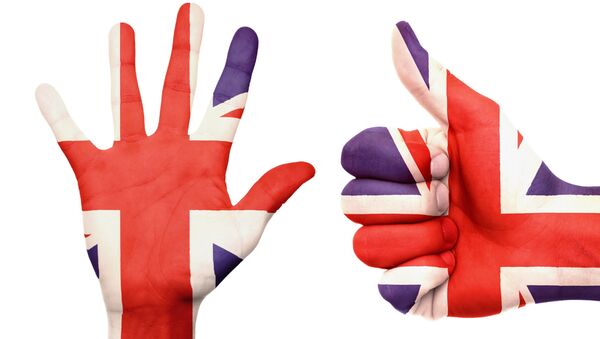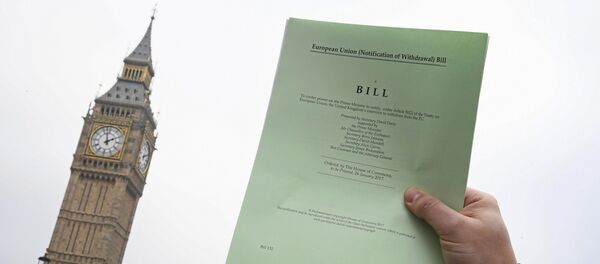The British foreign trade deficit narrowed in December as imported goods became less affordable as a consequence on the pound sterling’s devaluation, whilst smaller construction gained momentum due to a looser credit environment.
According to the data from the Office for National Statistics (ONS), the UK’s industrial output rose by 2.1pc in December, and by 1.2pc in the last quarter of the past year, driven by the increase in production in the pharmaceutical sector. Domestically produced medicines are becoming increasingly competitive following the sterling’s 15-percent slump in the second half of 2016, and, despite the biotech sector’s volatility, overall manufacturing looks solid.
"The economy has been remarkably strong in the third and fourth quarter but things might become more challenging in the middle of this year," Peter Dixon of Commerzbank AG said.
The British economy has outperformed other G7 nations in 2016, even though Brexit fears were supposed to curb domestic investment and impair the performance of the financial sector. Albeit some downward dynamics were observed in this regard, the negative consequences to the UK’s economy post-Brexit turned out to be smaller than initially anticipated, whilst the stronger rebound in manufacturing suggested the desolated traditionally industrial regions of the English North are back on the UK economic map.
In a separate report, the ONS said the trade deficit narrowed in December to £3.3bln from £3.6bln as British exports to non-EU countries added a whopping £1.1bln that month only. In the fourth quarter, the UK’s trade deficit decreased by £5.6bln to £8.6bln, or by a staggering 39pc.
Surprisingly, the ONS observed the trade deficit didn’t narrow because of the sterling’s devaluation. Rather, a shift in foreign trade patterns is a likely reason, as trade with non-EU markets turns out to be more profitable for UK exporters, fleeing the over-regulated common market of the continent.
"While both exports and imports grew over 2016, there remains little evidence that the weaker pound has had an effect on the trade balance," Kate Davies of the ONS said.
On an annualised basis, UK manufacturing advanced 4pc in December, having greatly exceeded earlier projections for 1.7-percent growth. This data suggest the growth in manufacturing is likely to remain steady in the next twelve months due to a higher volume of industrial orders, including long-term ones.
"Indeed, we think that the expansion in manufacturing activity will exceed that in services for the first time since 2011, as the manufacturing sector gets a competitive boost from the fall in the pound, but consumer services growth is constrained by rising inflation," Scott Bowman of Capital Economics said.
Early estimates for January 2017 suggested that British manufacturing performed according to the revised projections of a 3.2pc increase due to the robust output gains across all industrial sectors. The slide from December’s highs are attributed to rising input costs: raw materials, particularly, fuel and industrial metals, have gained value in the global market, and become dearer to import due to the weaker pound.
Whilst the UK economy has been driven mostly by services and finance during the past two decades, the rebound in manufacturing and increasing isolation from the EU might render the industrial production a more prominent economic driver in the mid-to-long-term.
With its trade deficit rapidly narrowing, Britain might see a surplus in foreign trade sooner than previously believed, with its economic model more diversified and akin to that of Germany, currently the powerhouse of the EU’ economic expansion. After parting ways with the common market in Europe, the UK will aggressively seek stronger trade ties with the Commonwealth and rest of world as the gains in domestic manufacturing will spur a more acute need for overseas markets.







